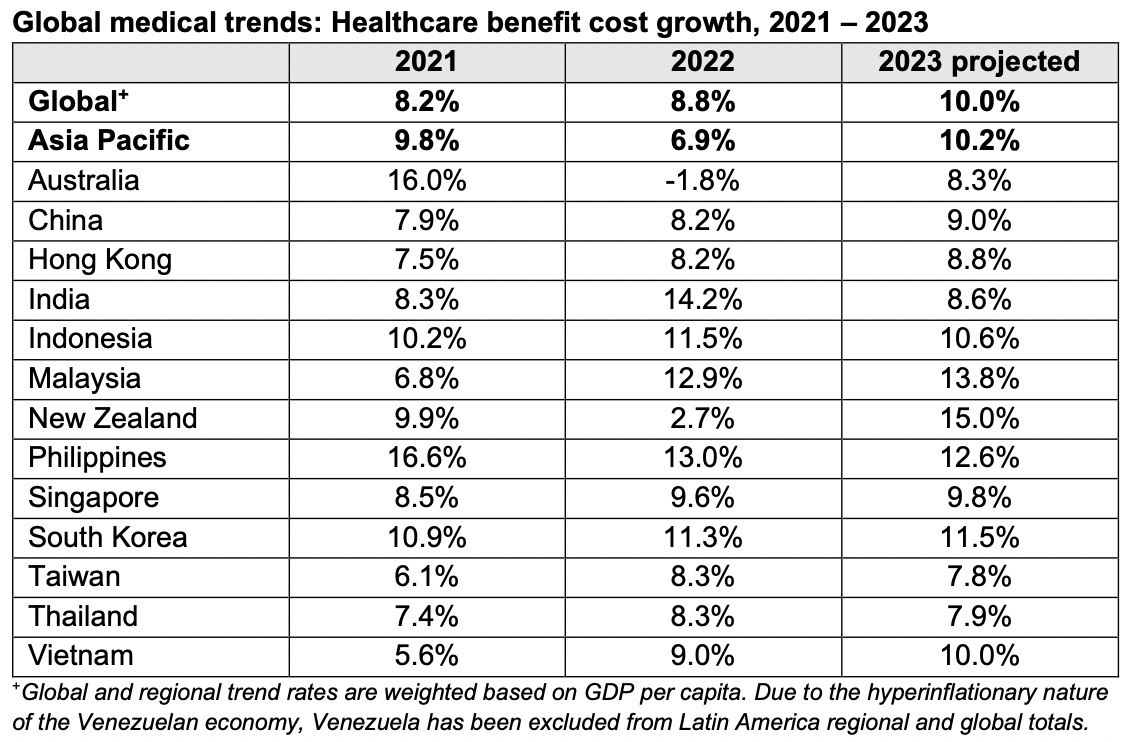
Employers advised to prioritise DEI in healthcare strategies across APAC

Healthcare benefit cost in Asia Pacific is expected to surge by 10.2% in 2023, according to a WTW survey, as employers are warned of a "challenging year" ahead. The projected increase, reported to be the highest in 15 years, is because of widespread inflation and increasing healthcare use in the wake of the pandemic, according to the survey. By location, the report revealed the following projected benefit cost growth:

Photo courtesy of WTW report.
Read more: APAC employers eye impressive 2023 pay rises
Insurers said the leading driver of medical costs is the overuse of care (81%) due to medical professionals recommending too many services or overprescribing. Other reasons include poor health habits of insurers (58%) and underuse of preventive services (46%).
"The bottom line is that these large increases are unsustainable. Employers and insurers will need to develop strategies and solutions to rein in costs to more manageable levels," said Cedric Luah, head of Health and Benefits International at WTW.
On top of soaring health benefit costs, the report also revealed that some employee groups are getting left behind in the healthcare strategies of some organisations.
"Exclusions persist for conditions in areas related to DEI, a key priority and board-level issue in many organisations," said Eva Liu, head of strategic development, health and benefits, Asia and Australasia at WTW. "These exclusions range from fertility treatment, HIV/AIDS, treatments related to menopause, and other mental and behavioural health including but not limited to autism, ADHD, and so on."
Read more: What boosts a benefits package?
This gap presents a challenge for employers who are already struggling to cope with the surging healthcare benefit costs in the next year. According to Liu, employers should consider how they can help deliver more equitable health outcomes to other employee groups.
"Healthcare affordability remains top of mind for insurers, employers and employees. As we move into next year, we see a challenging year for employers in trying to balance the convergence of rising medical trend, salary pressures, and the need to continue to make progress on DE&I initiatives globally, all while dealing with potential recessionary markets," Liu said.